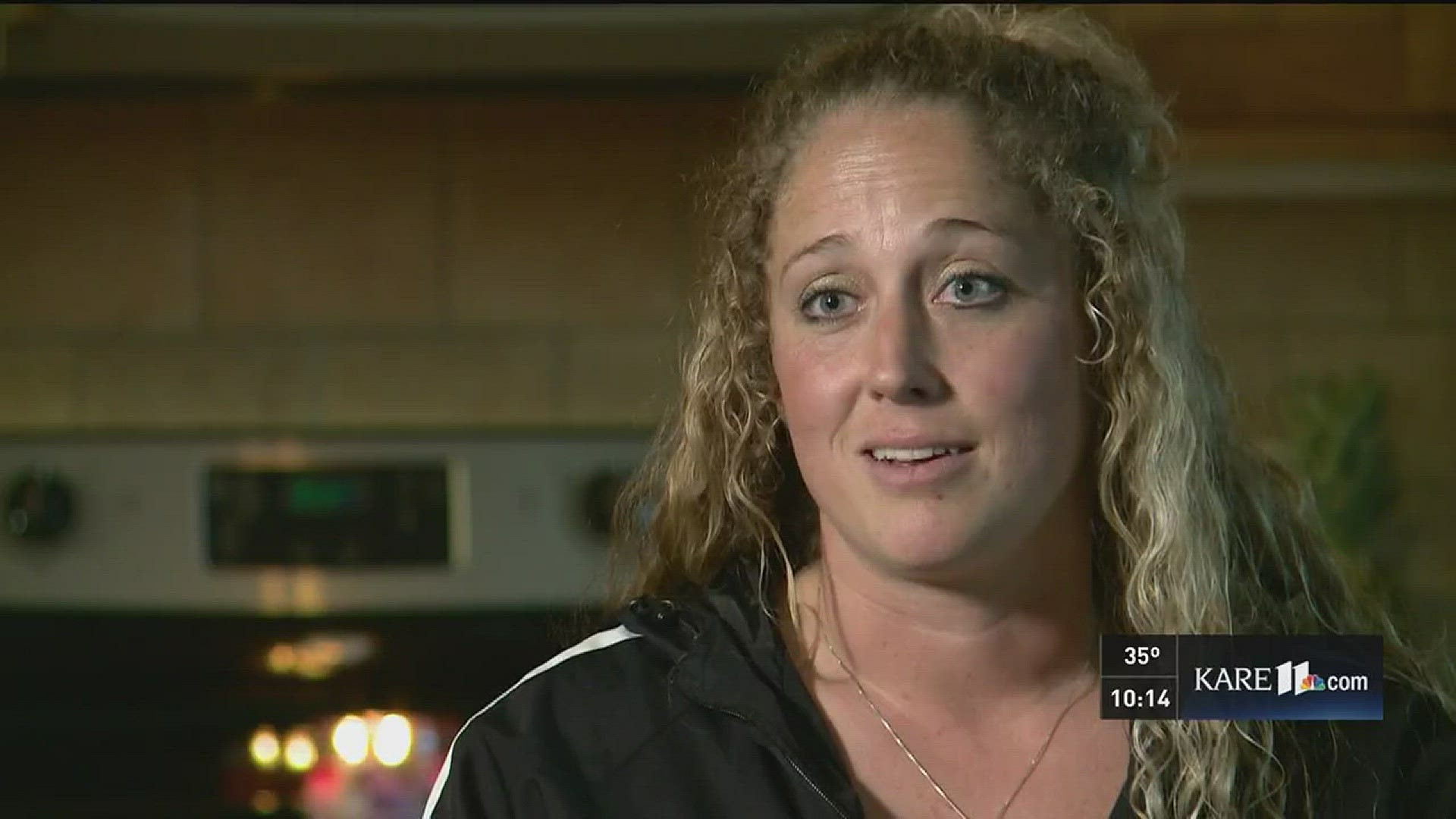HASTINGS, Minn. - Krystal Johnson knew well plotted ambitions would change course after the arrival of her two young children, now ages 3 and 1.
But working as a full time deputy at the Dakota County Sheriff’s Office in Hastings, motherhood brought a move never imagined, after she struggled with an unfamiliar feeling of defeat.
“I'd be in tears some mornings dropping them off because I was working all the time and working late, and overtime and you get home quick in time to give them a bath and send them to bed,” said Johnson.
Last year, Johnson approached her boss, Dakota County Sheriff Tim Leslie, with her dilemma.
“I said to him, I am going to quit my job, there is nothing that Dakota County did, I just, I am really at a crossroads here,” Johnson recalled. “And he talked me off the ledge and said I want to keep you, do you want to keep your job? I said absolutely, is there something we can do? I was dumbfounded when I left there not at all what I expected when I went to meet with him.”

But understand Sheriff Tim Leslie's true badge of honor is family. He's a father of four.
“I said, wait, let's talk about this? Is there a way to somehow meet you partway? She was a little startled by that,” said Sheriff Leslie. “I grew up with a single mom, she missed me growing up, I missed her growing up, and I'll always remember that.”
Another reason why he offered Deputy Johnson an option unheard of in male dominated law enforcement. A part-time position.
“The county was very open to this idea of trying to be more creative about how we meet with millennials and new employees partway, and we want a top quality workforce and sometimes you got to bend a little bit to do that. I think it’s what employers need to do nowadays do be more understanding and accommodating to understand the pressures employees are under,” said Sheriff Leslie.
“I mean, law enforcement is under tremendous scrutiny, I need top quality people, I need a diverse workforce, I need people to be here and if it means working 20 hours a week for a few years to get through tough times, I am okay with that,” he said.


Family time is now abundant after Johnson made the move to 20 hours a week and redefined her duties. She now works part-time, either in courthouse security, transporting female inmates, or helping the department with domestic violence victims and teaching use of force.
So far, no other deputies have taken Sheriff Leslie’s offer to work part time but Leslie said he’s now looking for more part time employees, especially female deputies who can transport female inmates. He believes Dakota County Sheriff’s Office is the first law enforcement agency in the state of Minnesota to offer this flexibility to its employees.
Anne Kaduk, a Ph.D. candidate at the University of Minnesota, applauds the move and hopes more employers get the same memo. Her dissertation focuses on the reasons women exit the workforce, and how that affects future job prospects and reentry into the workforce.
“Something has to give and a lot of times it’s the women’s employment, which has gender inequality consequences and also consequences for the well-being of families. It’s very rare women can get back into the same level they were before so a lot of women end up making less money and doing something that uses their skills, but not getting rewarded financially in the way if they would have stayed at a job,” said Kaduk.

She points to a body of research, including research by colleagues at the U of M, that shows employees who have voice in their work schedules are happier and healthier on the job, with lowered work family conflict, lower stress, lower turnover and more productivity. But in Kaduk's view, that all requires an overhaul of office culture and building in ways to scale back.
“So women can meet responsibilities in their lives, or men too. I think it's important to offer men with caring responsibilities and, particularly millennial men, wanting to be more involved in families,” said Kaduk. “It’s also really radical to change work and we are not really quite there yet as a society.”
A 2011 study by the Families and Work Institute on workplace flexibility among professional employees that finds the majority (75%) of employed parents - professionals and non-professionals alike - feel they don’t have enough time to spend with their children. The study found Gen X and millennials are consistently more likely to report insufficient time to spend with their loved ones. Amongst professionals with children under 6 at home, younger employees are more likely to report they don’t have enough time to spend with their children than older professionals.
Deputy Krystal Johnson’s two roles can both still be exhausting, demanding, and unpredictable, but they are no longer in conflict. She knows she will return to working full time at some point when her kids are in school, but at this season of life, a deputy has found her peace.
“I was a cop. I was a deputy, I was doing my job, I was trying to do my best with keeping up with being a mom, but now I am truly a mom,” said Johnson.

